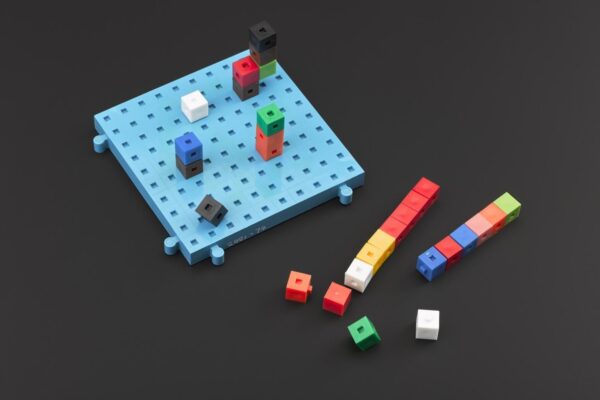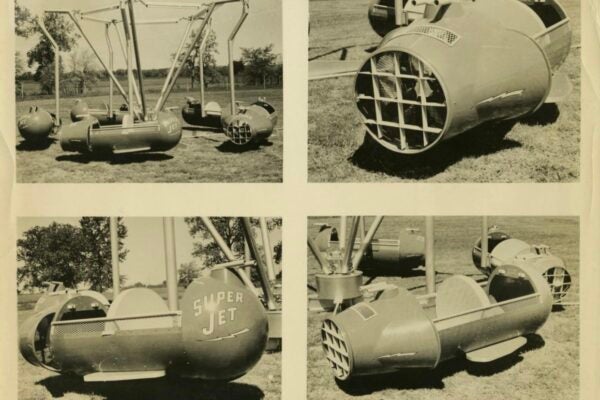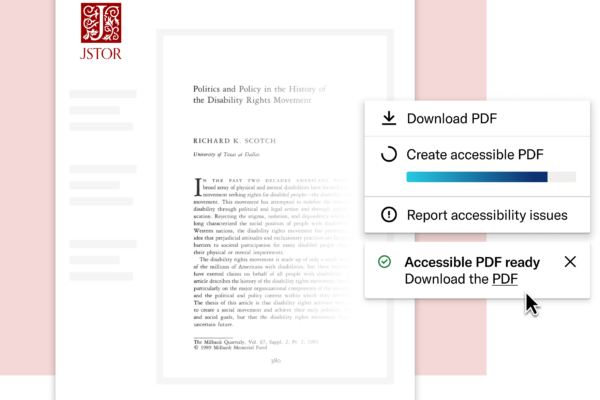JSTOR Access in Prison Second Chance essay submission by Wyatt Reed
About the artist
The following is directly from Wyatt Reed; no alterations have been made to his original submission.
I’m an artist. Guided by my creative perception of the world. Processing the complicated amalgamation of conflicted realities into some form of visual emotion. This has turned me into a collector of experiences. A purveyor of complex inner turmoil that makes up the human condition. This creative path has been my compass through the swampy wastelands of my life.
I’m forty five years old. I just got out of federal prison and will now be forever burdened by my past. Or can I turn this tragic past into an expressive narrative, filtered through an artistic lens that helps me explain my condition. To unburden myself and by doing so, giving meaning to the convoluted matrix that has become my life. A life of addiction. A life of crime. My soul sickened by experience. My new reason for living.
I did graduate high school and was given a partial scholarship into a highly regarded art college. I did excel in the art world, sold work in revered art galleries, recorded hip-hop albums, was given a recording contract, but still destroyed all semblance of a successful future. The only positive fiber of being that survived through all the madness was my creative expression. I will now immerse myself into this artistic identity and try to become whole again.
This is my form of some type of biopic. A sliver into what and who I am. All I can really say, is that there is a burning and wrecked life behind me, and a murky and unclear road ahead of me. An identity that I’m trying to solidify, and a skillset I plan to use to get there. There is a hope that I have, some idea of the person I want to become. There is a vehicle to get there, and I plan to write about the foggy travels of where I’ve been and where I plan to get to.
Reclaiming Identity Though Prison Based Learning
Identity is based on a sense of self or beliefs. Having conviction in those beliefs strengthens your identity. But most of the time your identity is defined by the culture that surrounds you. Through your shape, size, race or even how you choose to dress. Many will define your identity because of your religious ideology. Your faith in a higher power or political associations. Your identity is often defined but your parentage, the storyline of your family or the struggles you’ve endured. Identity is often fragile.
What happens when your identity becomes damaged and you’re in crisis? Well, identities can become broken. The wounds that have been inflicted upon us by others or ourselves can shape how we see ourselves and the world around us. The abuses of the world that we inherit can rot the core of our truth. Drugs can blanket our wounded inner selves and allow us to cope. When does the hurt we incurred and the coping mechanisms we have learned to survive become our identity? When the uncertainties of the self defines who we become and are.
By the time I found myself in federal prison at the age of 42, the uncertainty of self had created an identity crises. Years of drug abuse had set the course to my distorted criminal thinking. I believed this new identity protected me from a cruel and unsympathetic world. I finally realized, while incarcerated in a federal building facility, that I needed to put my faith in something greater than myself. I no longer trusted myself. I knew I needed to reclaim or find my truest identity.
I believed I could achieve this through the pursuit of a creative expression. For most of my life, art is what helped shape my identity. Art helped me learn my place in the world. It allowed me to feel I belonged. Creating art is what made me feel safe. It gave me a purpose to live. But somehow, at 42, I had lost that divine sense of purpose that blanketed me from the hurt. Drugs and a criminal lifestyle took the place of the arts from my life. That’s when I decided to get clean and devote myself to creating art. To take back a meaningful identity.
The start of this process was messy and chaotic. It felt like an unrealistic quest to find my hidden holy grail. Most days I felt defeated. It was a dark road of unpacking the years of emotional trauma I had inflicted upon myself. How could I make sense of the decade of heroin addiction.” Why couldn’t I stop? It was beyond painful, both physically and emotionally. With slow baby steps I began to uncover an identity I recognized. A person that I remembered before my descent into madness.
Then began the work. I devoted my waking hours to simply drawing. I allowed hours to pass as I consumed myself in my sketchpad with a common number two pencil. Then I found out there was an art class in m prison facility and I tried to get enrolled. That wasn’t an easy task since there was a long line of inmates in line to join the class but I stayed vigilant. This i learned to be the most important element in reclaiming my identity – unwavering dedication. I was devoted to getting in that art class. I remained persistent in talking to the art teacher and showing him my sketchbook. He thought I showed potential and gave me an early seat in the class.
Most of the inmates in the class just wanted credit or to find something to help them pass the time but I looked at the art class as my church. This is where I went to pray. I was given all the tools I needed to devote myself to m craft, drafting pencils, paintbrushes, acrylic paints and plenty of canvases. I was learning to become a specific person. There were countless brushstrokes I could learn. Through these dedicated efforts my identity was strengthened daily. Other inmates began to see me as a talented artist devoted to his craft. That supported my self of self.
Months passed when I found out the art teacher was about to leave and needed someone to replace him. He thought that I would be perfect for the position. Not only had I reclaimed my identity but I was going to be given a chance to teach others the tools I had learned. When you learn something that changes your life you feel like passing it forward.
That is how I reclaimed and defined my self and identity through prison based education.
Full audio of an interview with Wyatt
Editor’s note
by Elizabeth Shatswell
As we created this series, Wyatt Reed came home. Recently, I had the privilege of engaging in a profound conversation with him. He is an artist whose life story weaves through the tumultuous waters of incarceration, addiction, and the transformative power of artistic expression. As Wyatt shared his experiences, several key themes emerged—each resonating deeply within the human experience, regardless of our backgrounds or circumstances.
At the heart of our dialogue lay the concept of redemption, which Wyatt describes as the “hero’s journey.” He stated, “I guess all my world in drugs or in the world of… brokenness has kind of now added to my art.” Through his lens, redemption is not merely a destination but an ongoing, continuous journey. This perspective challenges the often simplistic notion that one can simply “turn their life around” overnight. Instead, it invites us to acknowledge the complexities of personal growth, the struggles, and the triumphs that shape our identities over time. It changes the definition to one of journey, versus a goal to complete.
As our conversation unfolded, the role of art emerged as a powerful tool for healing. Wyatt explained, “Through my art, you know, there’s a visual sense of being able to allow people to see what they see into the visual side of art.” For him, creative expression is not just a form of art; it’s a lifeline—a higher calling that channels his pain into something transformative. Art serves as a means to articulate the struggles, emotions, and experiences that might otherwise remain unspoken.
We delved into the complexities of identity, exploring the duality that exists within Wyatt. He reflected, “I’ve found more meaning… maybe now some need to rectify from the world of the broken self.” This internal conflict highlights the tension between his past—marked by crime and addiction—and his current role as an artist who is still finding his footing after returning home. The idea that multiple identities can coexist within one body adds another layer to his journey.
The challenges of reintegration into society after incarceration came up as a significant theme. Wyatt candidly noted, “I think a lot of the people here, they don’t even have that emotional aptitude themselves.” He discussed the societal expectations that often pull individuals back into old identities, illustrating how this struggle extends beyond personal battles to reflect broader societal narratives about success and failure, particularly for those with criminal backgrounds.
Our conversation highlighted the need to critique the narrow narratives that dominate discussions about redemption and achievement. Wyatt observed, “I think it’s really hard when you look like societal success to identify emotional and growth success internally.” He urged a reevaluation of how we define personal growth and fulfillment, challenging the idea that one’s worth is solely measured by material success.
A recurring theme throughout our discussion was the critical importance of supportive relationships. Wyatt emphasized, “I think you have to have an advocate who you can be honest to.” His connection with his mother has provided a foundation for honesty and accountability, underscoring the value of having advocates who understand the complexities of one’s journey.
Honesty emerged as a vital component of Wyatt’s identity-building process. He posed the question, “How honest can you be to yourself, you know?” Vulnerability became a pathway for deeper connections, allowing him, and challenging us, to confront our struggles head-on and build moments of grace for ourselves and others.
As we explored the influence of the environment, Wyatt noted, “I’m still surrounded by people that are a lot like me, excess of like that and wanting to remain there.” His surroundings reflect the realities of addiction and recovery, illustrating the complexities of navigating these challenges within a communal context of prison or now, transitional housing.
The interplay between ego and materialism also surfaced in our conversation. Wyatt criticized the societal values that prioritize external success over inner fulfillment, highlighting the tension between societal expectations and personal authenticity.
Finally, we discussed the transformative power of education, both formal and informal. Wyatt remarked, “I think sometimes the only narrative that is pushed back into these spaces of incarceration is that you’ll only work a menial job.” He went on to express that writing can explain what his art is saying more fluidly and directly. As such, the ability to express oneself in through both is necessary to expand what narratives those who are incarcerated have access to.
As I reflect on this conversation with Wyatt Reed, I am reminded of a truth most of us experience: redemption is not a linear path but a complex, ongoing exploration.
I encourage you to listen to the entire conversation for yourself.
The opinions and views expressed in these recordings, art, and posts are those of the authors and do not represent, reflect, or imply endorsement by ITHAKA.






